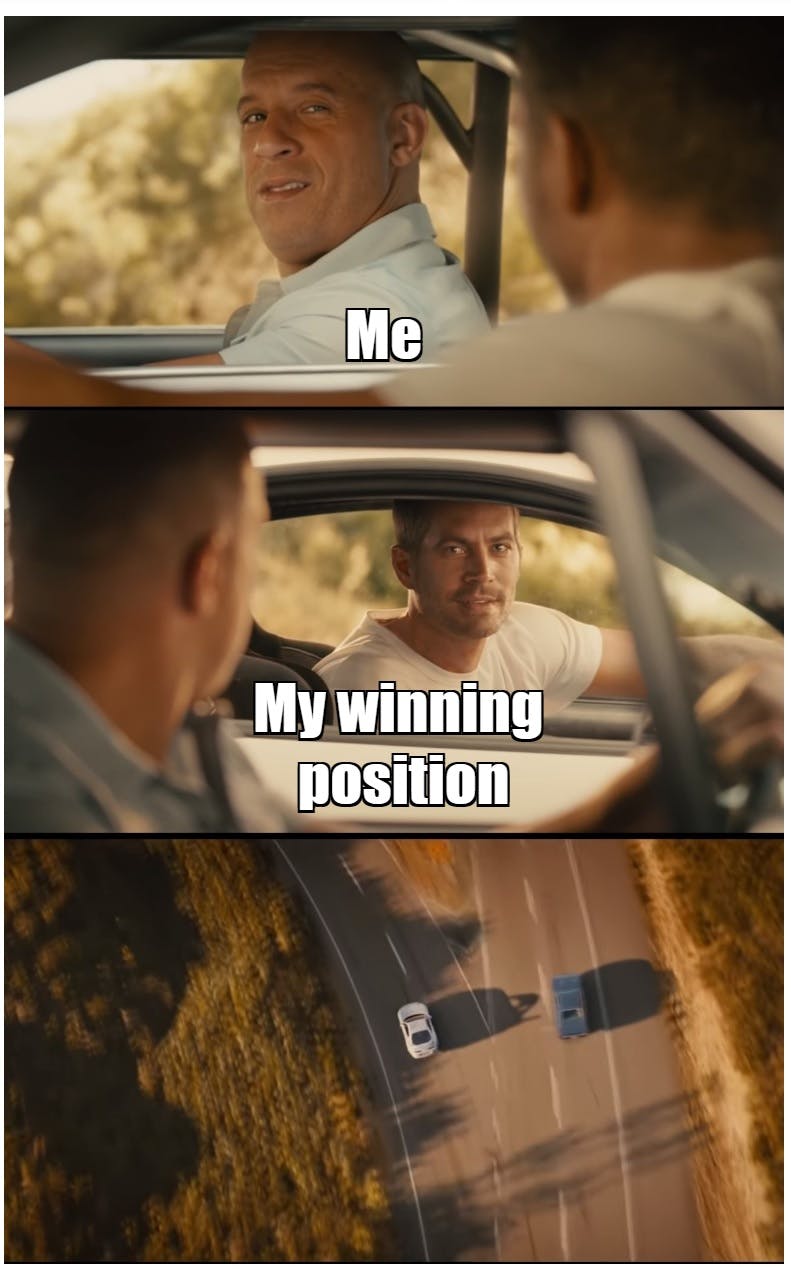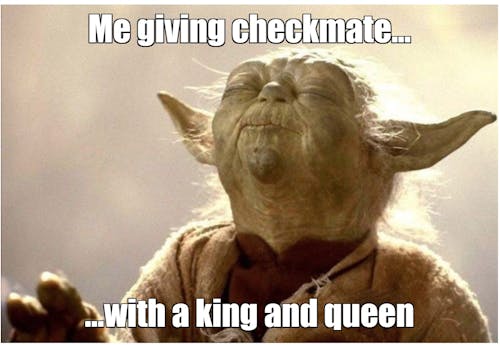Are you sure you want to delete your account?
(This will permanently delete all of your data - purchases, game scores, ratings, etc)
Change your username
Your current username is: guest
Change your account email address
Your current account email is:
Redeem your Fampay code here!
Use your Fampay code to get access to the Play Magnus Plus Membership!

How Do You Convert a Winning Position?
The hardest part of chess is winning a won game.
Frank James Marshall
A journalist once described the outcome of a game of one of my friends as “his opponent couldn’t hold in a winning position”. In that case, it wasn’t true since my friend wasn’t lost at any point. Nevertheless, I still love the expression and use it fondly. Indeed, it is a common occurrence among chess players to become salty after a game and start complaining about having a commanding position and squandering the advantage. Whenever you hear "I was totally winning...", you know there is a "...but" coming later on.
In chess, one shouldn’t be too dogmatic. I had a weakness of relying too much on theoretical assessments. For example, if I realized that my position should be winning, I used to lose interest in the game and hope that it would end soon by itself. Similarly, I didn’t put up the best resistance in the positions which I evaluated as lost for myself. Grandmaster Natalia Pogonina provided me with useful advice in this regard. According to her, you shouldn’t dwell too much on the mathematical assessment of the position. Think about the best move, not the result. Generally, it makes more sense to try to improve the life of your pieces one by one. If you are ahead, it will usually lead to victory. If you are behind, it might give you some counter chances if the opponent’s play is not precise enough.
Chess.com had an interesting survey in 2008 on how people approach a better position. The question was, “When you are playing a game of chess and you have a big lead, does it affect the way you play?”The answers were the following:
- I tend to ease up when I have a big lead (17%)
- I continue to play hard so I can expand the lead (17%)
- I try to simplify the game and avoid all complications (45%)
- It depends on how strong my opponent is (22%)
Total number of votes cast: 1,972.
Let's go over the presented options and discuss whether they make sense.
Easing up obviously can’t be recommended.
To continue playing hard is nice, but not everyone is capable of doing it throughout the entire game.
Simplifying the game and avoiding all complications sounds like a wise thing to do, but this approach has serious drawbacks. First of all, you start playing defensively and being afraid of ghosts. This is not efficient in terms of converting the advantage. Secondly, if something does go wrong, you will probably start blaming yourself for allowing complications, and this will make the game spiral down even further for you.
Finally, the strength of the opponent should have nothing to do with how you approach the position. Of course, many of us are tenser when facing formidable partners and somewhat laidback when playing lower-rated opponents, but this is not the right attitude.
Let me offer you a few more tips on how to convert a winning position:
Don't play for style points. This should not be confused with avoiding complications at all costs. If you believe that a certain combination works for you and is the best way to win, trust yourself and go for it. However, some people start showing off for no reason. Instead of winning in a couple of moves, they sacrifice half their chessmen after discovering what they believe is a flashy mate in seven. Then on move five, they realize there was a hole in their analysis...and the game ends indeed, but not the way they expected! I remember one of my coaches telling me: "If you can pick up an extra queen in a couple of moves, and the alternative is to give a brilliant mate in X moves, always take the queen! The opponent will resign immediately anyway".
Magnus Carlsen, on confidence and trusting your instincts
When you fail to convert, analyze what went wrong. There are plenty of reasons why one can fail to convert a winning position, from psychological to purely chess ones. Quite often, the problem is that your tactics and calculation are not on par with your overall level. This can result in missing a decisive combination where it was most needed. Or, for other players, poor endgame technique is the bottleneck. As the old adage goes, a skillful endgame player wins drawish endgames and saves those where the opponent has an extra pawn.
Don't overestimate yourself. We tend to treat the position according to the chess engine's evaluation. Some of us lament not winning something like +10 position but forget that this number is based on the mind-blowing calculations of a machine rated 3500+. Neither of us is even close to this skill level, so we can't expect to be that flawless in driving the advantage home. This is yet another reminder that you can only relax after the scoresheets have been signed.
Be prepared to calculate. Experienced opponents will do their best to set up traps, stir complications, try to exploit your time advantage, etc. If you were able to invest enough energy into obtaining a winning position, you should also be prepared to go the extra mile to seal the deal.
Don't get into time trouble. When you are short of time, blundering is more of the norm than an exception. I realize that it's easier to say "don't get into time trouble" than to do it. Still, if falling behind on the clock is one of your chess sins, it should be addressed separately.
Always play the current position and forget about the past. This is especially important if you let the advantage slip somewhat or completely. Many of us become frustrated and try to bend the position to our will as if it was still winning. This may cause painful defeats. Be self-aware. If you feel that your blood pressure is rising, it may make sense to get up from the board and take a walk. Possibly even wash your face with cold water. The objective is to calm down and approach the position as if it had just been presented to you by another player. Letting go of the previous successes and failures.
Avoid daydreaming. A common mistake is to start celebrating too early, imagining how your much higher-rated opponent is going to resign soon; how you will spend your upcoming prize; how nice it will be to get a title norm, etc. This clouds your vision and serves as a major distraction. You lose focus since your brain relaxes as if the matter has already been settled. Also, you become anxious since you feel like you have something to lose: in your fantasies, the prize is already yours, but what if it slips out of your hands?
Don't be too hard on yourself. There is a thin line between constructive criticism aimed at self-improvement and mercilessly bashing yourself for not being perfect. Some players become extremely bitter after tough, "undeserved" losses. They can't sleep, resort to drinking booze, and, in worst-case scenarios, keep bringing up that unfortunate game in conversations for years and years. This is not the way!
It happens even to the best of us!
I wish you the best of luck in converting winning positions!
The Magnus Chess Academy app offers plenty of opportunities to polish your skills of converting a winning position: practical tips, interactive exercises covering all facets of the game, as well as captivating mini-games. Give it a try today and learn from the 5-time World Chess Champion!
